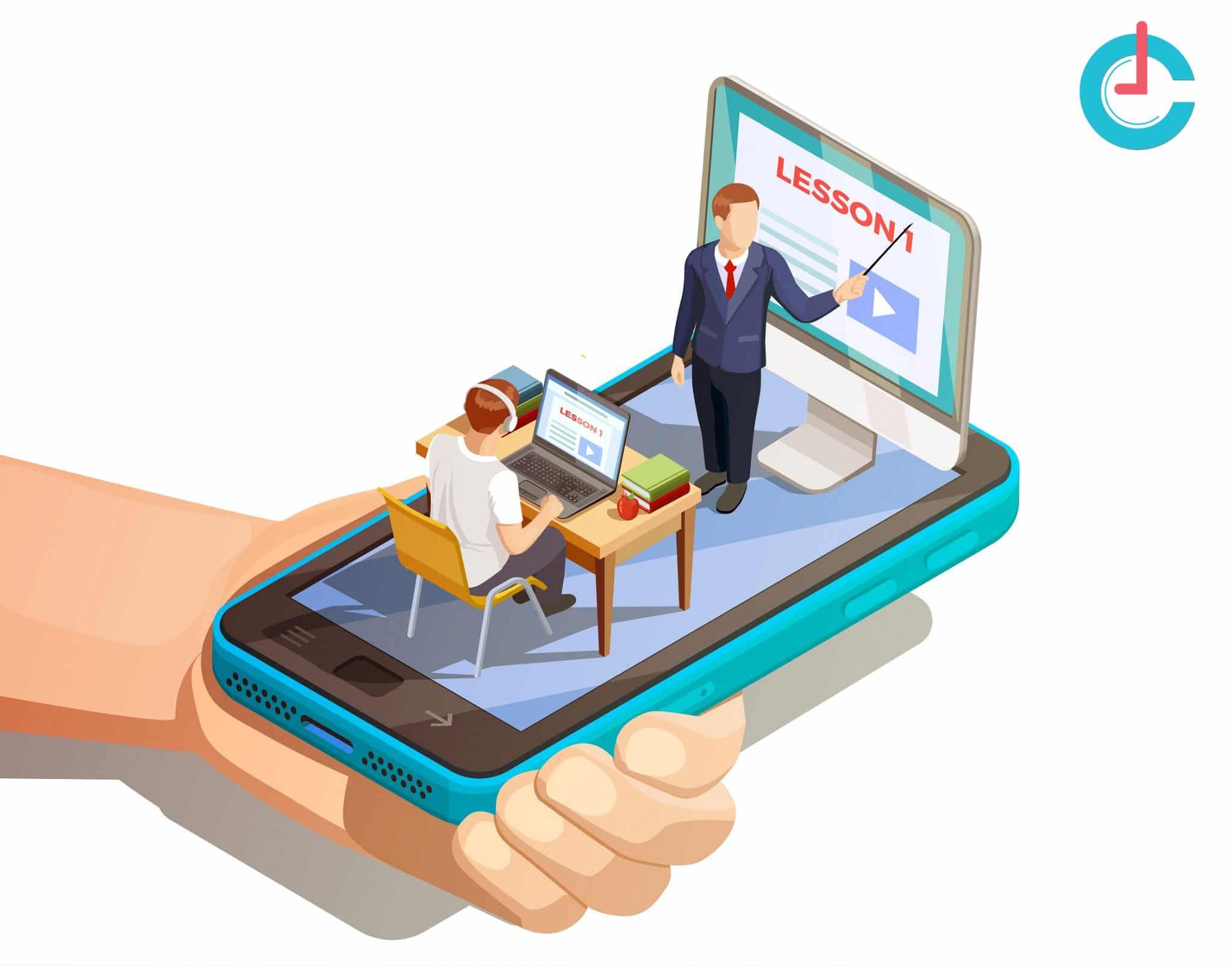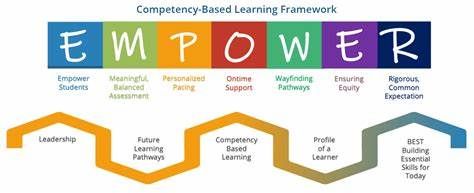@MERIA2fb03b24d1
AI-powered adaptive learning fosters student-centered education but must address digital access gaps, data concerns, and teaching readiness. Strengthening access initiatives, establishing clearer privacy frameworks, and supporting teachers through training are essential steps toward successful integration.
-
Empowering Education: Navigating Personalized Learning Technologies for Equity and Excellence
"Empowering students through engaging education, fostering environmental consciousness, and advancing scientific literacy. Committed to shaping future leaders in Life and Earth Sciences."
-
@OUSSAfd6aa665af
Personalized learning platforms use AI to adapt educational content to individual students, improving engagement and effectiveness. However, challenges like access, privacy, and educator training must be addressed through initiatives ensuring universal access, transparent data policies, and professional development."Empowering students through engaging education, fostering environmental consciousness, and advancing scientific literacy. Committed to shaping future leaders in Life and Earth Sciences."
-
@OUSSAfd6aa665af
AI-driven learning systems personalize education, making lessons more effective. Yet, issues like accessibility, data security, and teacher preparedness persist. Solutions such as expanding access, enforcing privacy measures, and enhancing teacher training can maximize their benefits."Empowering students through engaging education, fostering environmental consciousness, and advancing scientific literacy. Committed to shaping future leaders in Life and Earth Sciences."
-
@OUSSAfd6aa665af
Adaptive learning technologies customize education but require equitable access, robust data protections, and teacher support. By implementing universal access initiatives, clear data policies, and professional development programs, institutions can overcome these hurdles."Empowering students through engaging education, fostering environmental consciousness, and advancing scientific literacy. Committed to shaping future leaders in Life and Earth Sciences."
-
@OUSSAfd6aa665af
AI-powered education enhances personalized learning, yet concerns about digital accessibility, privacy, and educator readiness remain. Strengthening access programs, ensuring transparent data handling, and supporting teacher training are key to sustainable implementation."Empowering students through engaging education, fostering environmental consciousness, and advancing scientific literacy. Committed to shaping future leaders in Life and Earth Sciences."
-
@BRYANb8875625e5
Personalized learning systems revolutionize education, tailoring content to individual needs. Overcoming challenges related to accessibility, data security, and teacher adaptation requires comprehensive strategies such as technology access programs, privacy safeguards, and ongoing professional development."Empowering students through engaging education, fostering environmental consciousness, and advancing scientific literacy. Committed to shaping future leaders in Life and Earth Sciences."
-
"Empowering students through engaging education, fostering environmental consciousness, and advancing scientific literacy. Committed to shaping future leaders in Life and Earth Sciences."
-
"Empowering students through engaging education, fostering environmental consciousness, and advancing scientific literacy. Committed to shaping future leaders in Life and Earth Sciences."
-
"Empowering students through engaging education, fostering environmental consciousness, and advancing scientific literacy. Committed to shaping future leaders in Life and Earth Sciences."
-
"Empowering students through engaging education, fostering environmental consciousness, and advancing scientific literacy. Committed to shaping future leaders in Life and Earth Sciences."
-
@Bousl2336873cb4 said in Empowering Education: Navigating Personalized Learning Technologies for Equity and Excellence:
One current topic in the integration of new technology in learning is personalized learning platforms and adaptive learning systems. These technologies leverage artificial intelligence and machine learning algorithms to tailor educational content and experiences to individual students' needs, preferences, and learning styles.
Challenges:
- Access and Equity: Ensuring that all students have access to the necessary technology and resources for personalized learning can be a challenge, especially in underserved communities.
- Data Privacy: Collecting and analyzing student data raises concerns about privacy and security, requiring robust measures to protect sensitive information.
- Teacher Training: Educators need training and support to effectively integrate and utilize these new technologies in their teaching practices.
Solutions:
- Universal Access Initiatives: Implementing programs to provide students with access to devices and internet connectivity, along with partnerships with community organizations and governments to bridge the digital divide.
- Transparent Data Policies: Establishing clear guidelines for data collection, storage, and usage, along with obtaining informed consent from students and their families.
- Professional Development: Offering ongoing training and professional development opportunities for teachers to build their skills in using personalized learning technologies effectively.
These solutions aim to harness the potential of new technologies in learning while addressing challenges to ensure equitable access and protect students' privacy and well-being.



-
@AHLEM18c600e513 Empowering education through personalized learning technologies involves leveraging AI-driven platforms that adapt to individual student needs, fostering both equity and excellence. While these tools offer promising pathways for more inclusive and effective learning, they also pose challenges—particularly around access in underserved areas, data privacy, and teacher readiness. Addressing these concerns through universal access programs, transparent data practices, and sustained professional development is essential to unlocking the full potential of personalized education while safeguarding student welfare and promoting educational equity.
"Empowering students through engaging education, fostering environmental consciousness, and advancing scientific literacy. Committed to shaping future leaders in Life and Earth Sciences."
-
@AHLEM18c600e513
Personalized learning technologies are reshaping education by tailoring content to each student’s unique needs and pace. To ensure these tools support equity, it’s vital to expand access, protect student data, and equip educators through ongoing training and support."Empowering students through engaging education, fostering environmental consciousness, and advancing scientific literacy. Committed to shaping future leaders in Life and Earth Sciences."
-
@MERIA2fb03b24d1
By integrating adaptive learning systems into classrooms, educators can promote inclusive, student-centered education. However, ensuring equal opportunity requires bridging digital divides, safeguarding privacy, and empowering teachers to lead with confidence."Empowering students through engaging education, fostering environmental consciousness, and advancing scientific literacy. Committed to shaping future leaders in Life and Earth Sciences."
-
@OUSSAfd6aa665af
The pursuit of educational excellence through personalization hinges on addressing the technological, ethical, and pedagogical challenges it brings. Success depends on collaboration between institutions, communities, and policymakers to support infrastructure, policy, and professional growth."Empowering students through engaging education, fostering environmental consciousness, and advancing scientific literacy. Committed to shaping future leaders in Life and Earth Sciences."
-
@MEJDM5b4e1b7a22
AI-driven learning platforms offer transformative potential for students, adjusting to how individuals learn best. Realizing this promise means investing in accessibility, strengthening data ethics, and prioritizing teacher readiness."Empowering students through engaging education, fostering environmental consciousness, and advancing scientific literacy. Committed to shaping future leaders in Life and Earth Sciences."
-
@MEJDM5b4e1b7a22
Personalized education represents a bold step toward individualized instruction and academic success. Yet, achieving equity demands deliberate strategies: expanding digital access, reinforcing data privacy laws, and rethinking teacher training models."Empowering students through engaging education, fostering environmental consciousness, and advancing scientific literacy. Committed to shaping future leaders in Life and Earth Sciences."
-
@AHLEM18c600e513
Technology can bridge learning gaps by adapting to each student’s strengths and challenges. But without equitable access and ethical frameworks, these tools risk deepening existing disparities rather than solving them."Empowering students through engaging education, fostering environmental consciousness, and advancing scientific literacy. Committed to shaping future leaders in Life and Earth Sciences."
-
@MERIA2fb03b24d1
Adaptive learning marks a shift from one-size-fits-all education to customized, student-centered pathways. Still, meaningful implementation calls for holistic planning—ensuring all learners benefit equally and responsibly."Empowering students through engaging education, fostering environmental consciousness, and advancing scientific literacy. Committed to shaping future leaders in Life and Earth Sciences."
-
@Bousl2336873cb4
Empowering education through personalized learning technologies offers a path toward greater equity and academic excellence. Adaptive systems driven by AI tailor learning experiences to each student’s needs, enhancing engagement and outcomes. However, challenges such as unequal access to technology, concerns around data privacy, and the need for teacher training must be addressed. Solutions lie in universal access initiatives, transparent data governance, and sustained professional development for educators. With thoughtful implementation, these technologies can bridge gaps and create more inclusive, effective learning environments.


